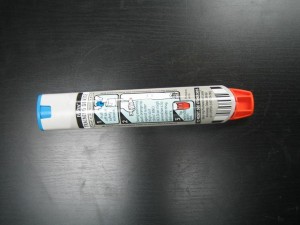An allergy is an immune response of the body to foreign substances that are not harmful to the body. Common allergens include certain foods, pet dander and pollen. These stimulate a response from the immune system.
Understandably, the task of the immune system is to keep the body healthy by fighting off infection and other harmful pathogens. This is done by attacking anything that might put the body in danger. The attack, depending on the allergen can involve sneezing, inflammation and other symptoms.
Generally, the immune system is acclimatized to your environment, thus if pet dander is present, it considers it harmless and will not attack. On the other hand, the immune system of individuals with allergies confuses the harmless substances as harmful invaders that threaten to harm the body. Obviously, allergies are common but there are various ways to treat them to prevent the troublesome symptoms.
What are the causes and types of allergies?
Always bear in mind that allergies typically occur when a normally harmless substance enters the body and the immune system is highly reactive to the invader. It is still not yet determined why the immune system reacts in this manner.
On the other hand, it is a known fact that allergies have a genetic component. It simply means that it can be passed from parent to child. Just remember that general susceptibility to allergic reaction is genetic while specific allergies are not passed down.
Common types of allergens
- Foods such as nuts, wheat, shellfish, milk and eggs
- Animal products such as pet dander
- Drugs such as penicillin
- Airborne spores produced by molds
- Insect bites and stings
- Plants especially pollen and resin
The most common allergies are the seasonal allergies that are caused by pollen by plants. It causes watery and itchy eyes, cough and runny nose.
When to consult a doctor

Food allergies can trigger hives, swelling, fatigue and nausea. It usually takes a while for an individual to realize that he/she has a food allergy. In case the individual has a serious reaction after a meal and not sure why, it is best to consult a doctor so that the exact cause of the reaction can be determined.
In severe allergies, it can cause anaphylaxis which is a life-threatening emergency that leads to lightheadedness, breathing difficulties and loss of consciousness. If the individual experiences these symptoms after being exposed to an allergen, seek emergency care right away.
Treatment for allergies
Ideally, the best treatment for allergies is to avoid what triggers a reaction. Individuals with hay fever and seasonal allergies cannot avoid the outdoors; the treatment involves medications such as antihistamines to control the symptoms. It includes over-the-counter or prescription medications which depends on the severity of the allergies.
Individuals who suffer from severe allergic reactions usually carry an epinephrine shot or EpiPen. Take note that this shot is delivered to counter the allergic reaction until the medical team arrives. By enrolling in a first aid class, you will learn how to use an EpiPen during a severe allergic reaction.
